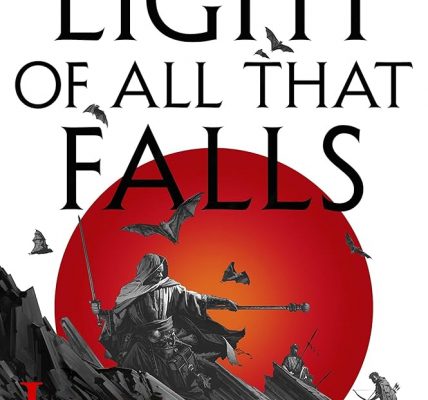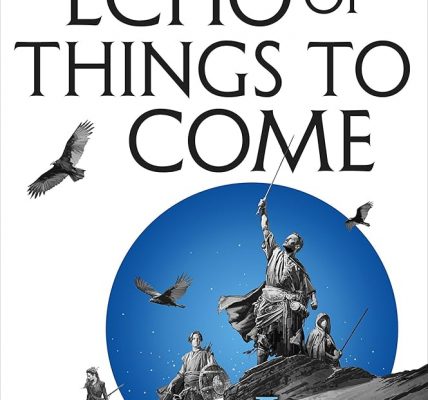
James Islington’s debut novel didn’t top my list of best fantasy books I’ve read, but it did crack the code for excellence in establishing a solid foundation as a modern fantasy writer. The journey undertaken by his charming trio of characters—each of whom is wonderfully likeable—is both enjoyable and pleasantly paced.
While this trilogy of grand epics might have benefited from being split into five shorter novels rather than three humongous and harrowing adventures, Islington stumbles only slightly and never falls when telling this tale. From schools for the gifted to a frightful battle at the heart of Andarra, I was easily swept away into this world.
Islington’s novel is set twenty years after a great rebellion, during which the magical sect of Andarran society was subjected to a brutal and bloody culling. During this event, the highest magical order—known as the Augurs, magicians with the ability to see the future and manipulate a higher form of magic using kan—was exterminated. Only the Gifted, servants of the orders who wield magical powers through essence, remain. They do so under the strict supervision of the Administration, a powerful non-magical order tasked with keeping the Gifted in check.
The story begins with our hero Davian, a young Gifted who has no access to essence and is soon to be made a Shadow—a Gifted stripped of their powers and marked with a dark brand across the face. When Davian is revealed to be an Augur, he is sent on a quest with his best friend Wirr, carrying a powerful vessel and searching for a boy marked with a wolf’s head.
Leaving behind his love, Asha—a young Gifted who finds herself at the heart of the capital following a tragedy at their school—the two travel across Andarra to uncover the ancient secrets of the Boundary. This mysterious divide separates the northern lands of Talan Gol, where the ancient and powerful Augur Aarkein Devaed gathers an army of monstrous beings. His goal: to destroy the Boundary and unleash darkness upon the world.
But Davian soon learns that not all is as it seems. He is not merely an ordinary Augur, and those around him have destinies as grand as his own. Beware—for even the ancient god El cannot be fully trusted. Traitors are everywhere. Darkness is coming, and the truth shall be revealed when Licanius is taken.
There’s a lot to love about The Shadow of What Was Lost. It boasts a fantastic story and a compelling cast of characters, whose fates intertwine in a narrative that’s both intricate and coherent. At times, however, it’s too tidy—moments when characters survive, gain new powers, or ascend to important roles can feel overly convenient rather than natural. Islington occasionally moves his pieces into place a little too obviously.
There are also moments when the exposition feels heavy-handed or unnecessary. I’m not saying I like to be completely in the dark, but sometimes a candle is more satisfying than a torch when revealing the full scale of a room. Islington provides a lot of information upfront, and not all of it feels earned. The conclusion, too, comes across as a bit brisk, and some of the action scenes lack impact. It’s clearly not where his strengths lay at the time—but given this is a debut, that’s understandable. The book has its flaws, but it’s still an incredibly strong entry into the genre.
If you’re looking to dip your toes into fantasy and want something that doesn’t feel too intimidating, The Licanius Trilogyis a great place to start. I give this book a solid 7.5 out of 10.



